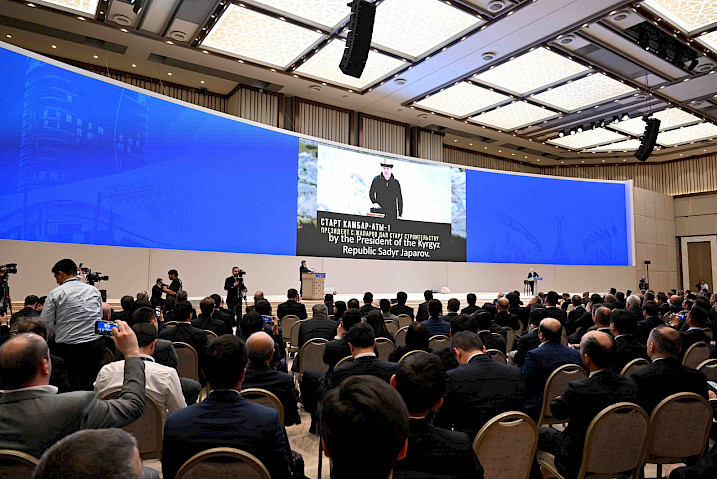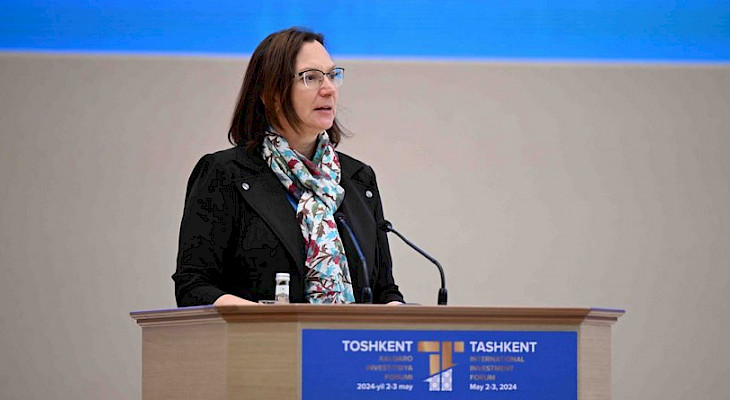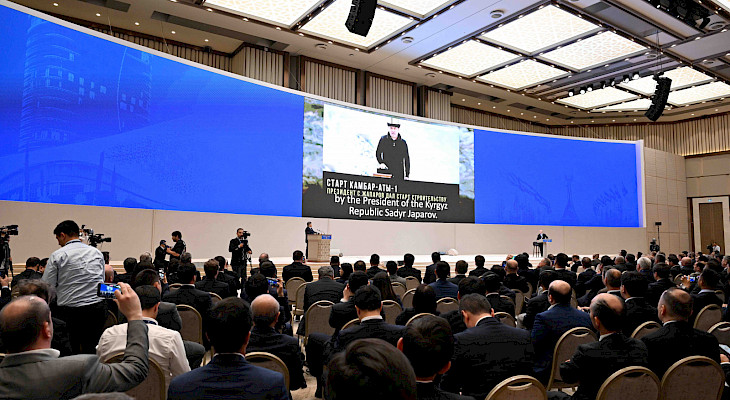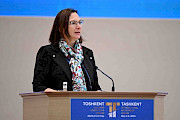For us, the construction project of Kambarata HPP-1 is a landmark project, as it will not only help provide electricity to Kyrgyzstan, but also solve water and energy problems in the entire region. Regional Director of the World Bank for Central Asia Tatyana Proskuryakova said this at the III Tashkent Investment Forum, Akchabar reports.
Speaking at the presentation of the Kambarata HPP-1 construction project, which took place as part of the forum, Proskuryakova emphasized that Central Asia faces many challenges, but one of the most key is the challenge associated with energy and water problems.

“We know that both energy and water shortages are problems that are only getting worse,” said the World Bank Regional Director for Central Asia.
There are several reasons why this problem will grow, she said. Firstly, climate change. It leads to more and more dry years in the future. The countries of Central Asia must be prepared for this and make appropriate decisions.
“Secondly, the population of Central Asia continues to grow, and therefore we expect electricity demand in the region to increase by 40% by 2030, and triple by 2050. And we’re not even talking about the fact that the countries of Central Asia have enormous potential for electricity exports. But now, unfortunately, all countries in the region, except Turkmenistan, are experiencing a shortage of electricity,” says a WB representative.

Proskuryakova also recalled that the Central Asian countries have committed themselves to decarbonization (an obligation to reduce carbon dioxide emissions into the atmosphere. - Author's note), which is also caused by climate change, which affects the whole world and all countries.
“And we know that the sector of the economy in Central Asia and in the world in general that is most responsible for greenhouse gas emissions is energy. Therefore, if we talk about reducing the carbon footprint, then it is the energy sector that should decarbonize at a faster pace in the region. In this regard, it is not surprising that both in the development programs of the countries of Central Asia and in the World Bank programs to support these countries, the water-energy agenda and the climate agenda are occupying an increasingly important place. Therefore, in terms of the share of funding for current projects and future projects, we see that these sectors will occupy an increasingly larger role,” she explained.
She noted that when we talk about decarbonizing the region and at the same time achieving sustainable economic growth, we cannot remain aloof from the need to develop green renewable energy sources, and indeed the World Bank is already financing green energy in all Central Asian countries.

“One country alone cannot solve water and energy problems in Central Asia. This is an agenda that can only be resolved through joint activities. And I am very pleased to hear from Mr. Japarov about how well and positively relations between Kyrgyzstan and Uzbekistan are developing in this direction,” continued Tatyana Proskuryakova.
At the end of her speech, she emphasized that financing the project for the construction of Kambarata HPP-1 is very important for the World Bank.
“For us, this is a landmark project, as it will not only help provide electricity to Kyrgyzstan, but also solve water and energy problems in the entire region. Such investments (investments in the construction of the Kambarata hydroelectric station. - Author's note) allow the region to insure itself, as it were. Therefore, we have already begun very close work with the government of the Kyrgyz Republic. We were honored that the Kyrgyz government approached us with an offer to work together on the Kambarata HPP-1 project. We have already approved the technical assistance project, and in order to attract funding, we hope to complete the update of the feasibility study, work on environmental and social assessment, as well as the preparation of a financial and commercial model in the coming months,” she concluded.
CentrlasianLIGHT.org
May 2, 2024








